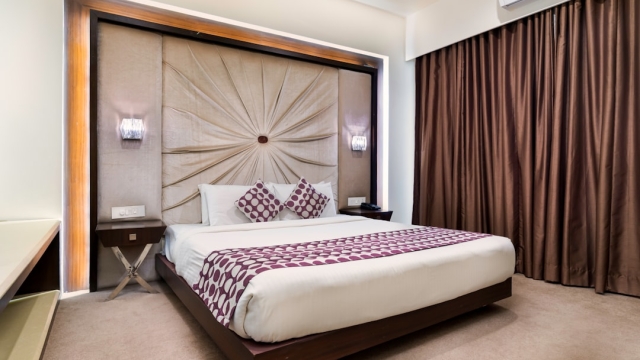The linen supply chain plays a crucial role in the hospitality industry, ensuring that hotels and other establishments have access to high-quality fabric products. Linen, which includes items such as bed sheets, tablecloths, and towels, is essential for creating an inviting atmosphere and delivering a comfortable experience for guests. Understanding the intricacies of the linen supply chain helps hospitality businesses optimize their operations, enhance guest satisfaction, and contribute to sustainable practices.
Overview of the Linen Supply Chain in the Hospitality Industry
The hospitality sector relies heavily on a well-functioning linen supply chain to maintain the standards expected by guests. This supply chain encompasses everything from sourcing raw materials to delivering finished products to hotels. Each step in this chain is interconnected, with efficiency and quality being paramount. The right linen can significantly impact a guest’s experience, making it essential for hotels to prioritize their linen supply chain management.
Sourcing Materials for Linen Production
The first step in the linen supply chain is sourcing the raw materials. Most linen products are made from natural fibers, primarily cotton and linen. Cotton is favored for its softness and durability, while linen, derived from the flax plant, is known for its breathability and moisture-wicking properties. The origin of these fibers can vary, with cotton often sourced from countries with warm climates, while flax is typically grown in temperate regions. When sourcing materials, it is important to consider not only the quality of the fibers but also the ethical implications of their production. Sustainable sourcing practices, such as organic farming and fair labor conditions, are increasingly being adopted by responsible suppliers.
Manufacturing Processes and Quality Control in Linen Production
After materials are sourced, they undergo various manufacturing processes to create finished linen products. This includes spinning, weaving, dyeing, and finishing. Each of these steps requires precise techniques to ensure that the final product meets high-quality standards. Quality control is a vital component of the manufacturing phase. Factors like thread count, fabric weight, and colorfastness are carefully monitored to guarantee durability and aesthetic appeal. Inspections at different stages of production help catch any defects early, ensuring that only the best products are delivered to hotels.
Distribution Channels and Logistics for Linen Delivery
Once linen products are manufactured, they must be distributed effectively to reach hotels and other clients. The distribution channels in the linen supply chain include wholesalers, distributors, and direct-to-consumer sales. Logistics play a crucial role in this phase, as timely delivery is essential for maintaining inventory levels and ensuring that hotels can provide linens for their guests without interruption. Transportation methods can vary, ranging from local deliveries to international shipping, depending on the supplier’s reach and the hotel’s location. Effective inventory management systems are also important to track stock levels and predict future needs, allowing for a seamless supply chain experience.
Sustainability Practices in the Linen Supply Chain
Sustainability is becoming increasingly important within the linen supply chain. Hotels are recognizing the environmental impact of their operations and are seeking suppliers that prioritize eco-friendly practices. This includes using organic materials, minimizing water and energy consumption during production, and implementing recycling programs. Moreover, many suppliers are focusing on reducing their carbon footprint by optimizing logistics and transportation, thus contributing to a more sustainable linen supply chain. By choosing sustainable options, hotels not only improve their image but also appeal to environmentally conscious guests.
| Aspect | Details |
|---|---|
| Sourcing Materials | Cotton and linen fibers |
| Manufacturing | Spinning, weaving, dyeing |
| Quality Control | Thread count, durability |
| Distribution | Wholesalers, direct sales |
| Sustainability | Eco-friendly practices |
In conclusion, a well-structured linen supply chain is essential for the hospitality industry. From sourcing high-quality materials to ensuring timely delivery and embracing sustainability, every aspect contributes to the overall guest experience. By understanding and optimizing their linen supply chain, hotels can not only enhance their operational efficiency but also create a more sustainable future. For those looking to explore options for linen products, numerous suppliers offer a wide range of choices tailored to the needs of the hospitality sector.

